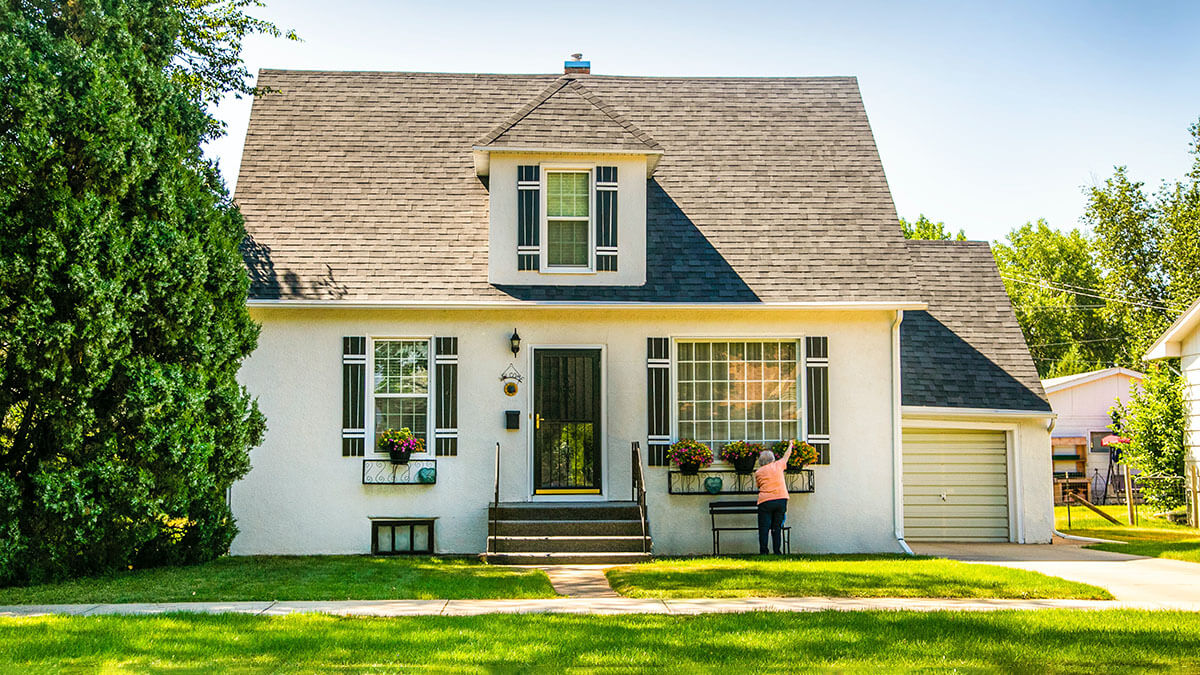As demand increases, so does homeowners’ interest in selling while the market weighs in their favor. However, if your home requires repair or maintenance, receiving low offers can be discouraging.
In this article, we’ll walk you through how to manage low offers, and strategies that can help you receive higher offers.
For those looking to sell without needing to do repairs, open houses, and back-and-forth negotiations, iBuyer.com can provide you with a fair cash offer, so you can move forward without the hassles of a traditional sale.
Handle Low Ball Offers
Compare Cash Offers from Top Home Buyers. Delivered by Your Local iBuyer Certified Specialist.
One Expert, Multiple Offers, No Obligation.
What is a Low Ball Offer on House?
A low ball offer is an offer that comes in much lower than the price you listed it for. Let’s say you listed your home for sale for $300,000. A low ball offer on the home could be if someone offered you $200,000.
Typically, when you sell your home on the MLS, you and your realtor come up with a fair list price. Your realtor will look at homes that have recently sold in the area near your home. They will also compare the condition of your home compared to other homes for sale.
When a potential buyer is interested in your home, they come in to make an offer. If that offer is lower than you’d like, this is your chance to counter offer at a higher price. The idea is to get to a number both of you can agree is a fair price for the house.
A low ball offer is one that’s so low, it’s hard to even know how to counter offer. The price may also be well under the appraised value of what the home is worth. This can be a frustrating aspect of selling your home on the traditional real estate market.
Why is a Low Ball Offered Made?
To avoid low offers, it’s important to price your home well. While you don’t want to give your home away, if it’s priced too high, it may sit on the market for longer than you’d like. This will cost you each month in mortgage payments, fees, and more.
A low ball offer is often made for a number of reasons. To start, a buyer just simply may not be able to afford the home. Maybe their financing isn’t for enough money, or the home is out of their price range.
Another reason is that your home may need a lot of work. To account for the money, they will need to spend on repairs and renovations, they may offer less. Any money they can save on the purchase price is more money they can use for repairs.
Someone may also offer a low price if they feel it’s priced too high for the area. They may see other homes that need less work or are in better condition and feel that the home is priced too high.
Consider if You Can Afford to Accept a Low Ball Offer
Whether or not you take a low ball offer has a lot to do with what you can afford. Regardless of the market, it’s important to consider your finances before accepting an offer. Let’s say someone offered you $200,000 for your home. If you have a mortgage for $250,000, you’ll technically be underwater for your home.
When your home sells for less than you owe, this is known as a short sale. With a short sale, you’re forced to pay the difference at closing. This means you’ll actually have to pay to sell your home. Don’t forget realtor commission fees and closing costs as well.
If you aren’t underwater on your home, you’ll need to consider what you need to buy or rent your next home. After the sale of your home, will you be able to buy another one in this market?
Many sellers will take the profits from the sale of their home and put it toward a down payment on their next home. The lower the offer is you get, the less you’ll have to do this. The offer you get for your house often plays a big role in your finances moving forward.
Look at Comparable Homes in the Market
If you receive a low ball offer, it’s important to look around your neighborhood. If the homes around you are selling for much lower, you may have priced your home too high. If your neighbor’s house is listed for much less than you’re asking, you’ll want to take a look at the condition of their home.
When looking at the market, you’ll also want to look at how your home compares to other ones. If you’re surrounded by a lot of new construction or newly renovated homes, it’s difficult to sell yours for a similar price.
Before you list your home, take a look at what is currently for sale and what has recently sold. Do you have more bedrooms, a bigger lot, and more updates? If the answer is yes, you may be able to price your home for more. If the answer is no, you’ll need to price yours well to sell.
Your home will only sell for what people are willing to pay. It also has to appraise for a certain value. This means your home will likely be inspected and looked at to make sure it’s worth what people are paying. With an as-is cash offer, you can skip this process entirely.
Consider Alternative Options
Selling your home with a low ball offer isn’t the only way to sell your home. Thankfully, there are other methods that are easier and more affordable. We can make an offer on your home without even needing to list it with a realtor or put it on the MLS. An as-is cash offer means no appraisals, no open houses, no showings, and no listings.
There are no people coming into your home every day making low, insulting offers. You don’t have to worry about getting your home ready to sell or updating it. When you sell your home the traditional way, you can make repairs and updates to try and avoid low ball offers. Each of these methods will cost you some money and time, however.
It’s important to ask yourself whether or not you have the time and money to invest in your home to get top dollar. If your home needs work, buyers will likely try to get a deal. More work means more money they need to spend to update the house. This is where low ball offers often stem from. While it can be frustrating, these types of offers can be avoided.
Consider working with us before listing your home with a traditional realtor. We’ll give you an easy estimate of what we think your home is valued at. There’s no need to make repairs, deal with the offer process, and go back and forth with negotiations. We’ll evaluate your home and take it from there.
Should You Make a Counter Offer?
When you receive a low ball offer for your home, it’s hard to know if you should counter. After you’ve evaluated what the home is worth, you should have a better idea of how you priced the home.
Look at the surrounding area, the condition of your home, and what has recently sold. If you feel your number is correct, stay firm, and make a counter offer. If you feel you priced your home too high, counter back with a lower number that’s more comfortable for you.
Regardless of how far apart your numbers are, it’s always good to try and counter to make sure you get as close to your asking price as possible. If you’re too far apart or you’re uncomfortable, consider selling your home a different way or removing it from the market.
How to Handle a Low Ball Offer on a House
It can be difficult to know how to handle a low ball offer on a house. Your home is important to you. It can be especially worrisome selling a home that needs work. While you want to get top dollar, you also want to get your home sold quickly so that you can move on with your life.
This is where a cash buyer may be a great alternative option. If you’re ready to see how much your home is worth, fill out the contact form here. A real estate professional will evaluate your home and work with you to get it sold without all the hassle of selling traditionally.
Looking for cash offers on your home? You’ve come to the right place!
Reilly Dzurick is a seasoned real estate agent at Get Land Florida, bringing over six years of industry experience to the vibrant Vero Beach market. She is known for her deep understanding of local real estate trends and her dedication to helping clients find their dream properties. Reilly’s journey in real estate is complemented by her academic background in Public Relations, Advertising, and Applied Communication from the University of North Florida.




